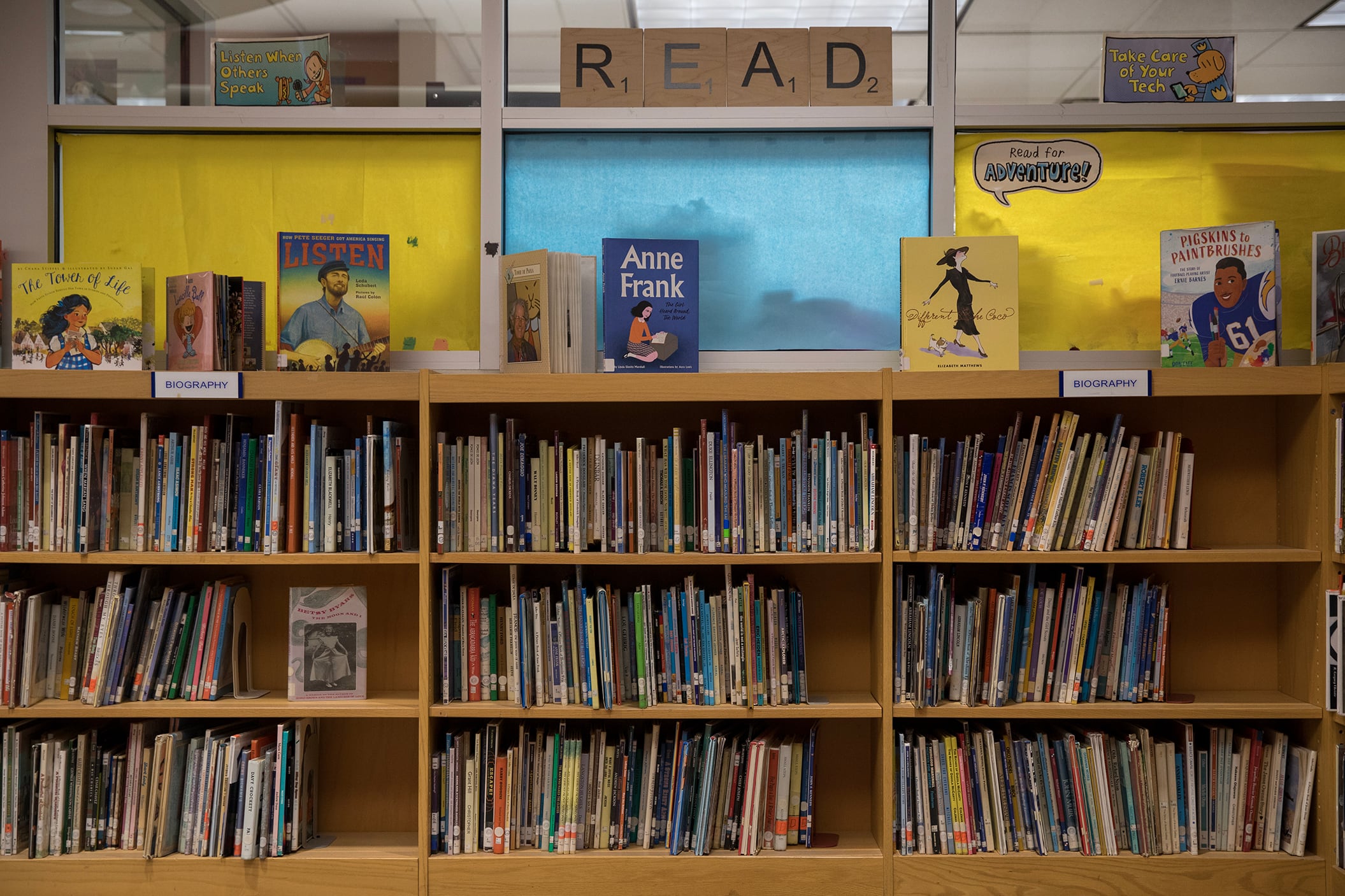Sign up for Chalkbeat Indiana’s free daily newsletter to keep up with Indianapolis Public Schools, Marion County’s township districts, and statewide education news.
Thousands of Indiana students advanced through elementary school without demonstrating critical reading skills, new data from the Indiana Department of Education shows, as state lawmakers consider requiring more students who struggle with reading to repeat third grade.
It’s the state’s policy to hold back third graders who don’t pass the state reading test — the IREAD-3 — but data shows that retention rates have sharply decreased over the last decade, despite a simultaneous decline in reading scores.
Around 96% of students who did not pass the IREAD3 moved to fourth grade over the last decade, according to a presentation at the State Board of Education meeting on Tuesday.
In 2023, 13,840 third graders — or 18% of all third graders in the state — did not pass the test. Of those, 13,428 moved on to fourth grade and 412 stayed in third grade for another year.
The state allows exemptions to its policy for students who have disabilities, or those who are English learners. Roughly 5,500 students received an exemption in 2023, allowing them to move on to fourth grade despite not passing the test. These students do not take the reading test again, so it’s unclear whether they attained third grade reading skills, education department officials noted.
But the remaining 7,925 students who moved on to fourth grade in 2023 did not have such exemptions; they moved on through a practice known as social promotion, which is allowed under state policy. A 2021 memo from the Department of Education outlines that schools should consider a student’s “overall academic performance” and not just their IREAD-3 score in determining whether they need to repeat a year.
This group of students must take the IREAD-3 in fourth and fifth grades, and receive additional support in literacy, but officials said it’s not clear from the available state data if these students ever reach reading proficiency.
Indiana Education Secretary Katie Jenner noted that some of these students are transient, making it harder to track their data.
Changes to third-grade retention policy likely
Jenner emphasized that schools are not at fault for the drop in retention rates since 2012, when the state policy went into place.
Of the roughly 6,000 students who did not pass the IREAD-3 in 2012, around 4,000 received exemptions, and nearly 2,000 were retained. Just 24 were “socially promoted” to fourth grade without exemptions.
“Schools are following what’s allowable in the state,” Jenner said. “Schools are not breaking the rules on this piece.”
Lawmakers have already indicated that they want to tighten the rules on retention in the next legislative session that begins in January. Reading has been an ongoing focus for the legislature, which this year passed sweeping laws requiring schools and teacher preparation programs to use reading methods based in the science of reading.
Republican state leaders also said they would plan to tackle absenteeism, which Department of Education officials linked to poor reading performance. Absenteeism rates are highest in early elementary grades and in high school, according to state data.
At a November press conference, the Indiana State Teachers Association declined to comment on a potential change to the state’s retention policy until a bill is filed. ISTA President Keith Gambill said class sizes along with the state’s relatively late age for mandatory school entry of 7 years old could affect literacy rates.
“We support efforts to make sure we’re doing all we can to have students reading at grade level,” Gambill said.
Effects of retention are mixed
Along with retention rates, reading scores have shown a steady decline since the 2012-13 school year, when proficiency rates peaked at 91.4%. After dropping from 87.3% to 81.2% from 2019 to 2021, scores have inched up by a fraction of a percentage point each year to 81.9% in 2022-23.
The progress is not enough to meet the state’s goal of 95% of having third graders reading at grade level by 2027, officials noted.
Not reading proficiently by third grade is linked to several concerns, many of which education department officials highlighted on Tuesday. Students who don’t pass the IREAD-3 are unlikely to pass state tests in older grades, Jenner said. They experience ongoing academic challenges and are less likely to graduate.
“When a child is sitting in your classroom and is unable to read, it is mortifying when they’re in ninth grade,” Jenner said. “They’re acting out because they’re embarrassed.”
Studies on retention have shown mixed results, with many finding that retained students go on to have higher test scores.
A recent study of Indiana data from the Annenberg Institute at Brown University found that third-grade retention boosted student performance in reading and math immediately, and that the effects persisted into middle school.
Furthermore, the study found that retention did not affect nonacademic factors like attendance and student discipline, which are a common concern when retention policies are discussed.
One of the study’s authors, NaYoung Hwang, a professor at the University of New Hampshire, told Chalkbeat that further studies are needed on the effects of retention on other nonacademic factors, like students’ self-esteem and friendships, and teachers’ expectations.
Hwang said early intervention was key in retention policies, as third grade represents a transition point in students’ learning.
“Up to fourth grade, most students have the opportunity to learn how to read. But then after that, it’s ‘read to learn,’” Hwang said. “Once you become a fourth grader, and you can’t read, it can have really negative consequences on all your learning.”
Aleksandra Appleton covers Indiana education policy and writes about K-12 schools across the state. Contact her at aappleton@chalkbeat.org.








